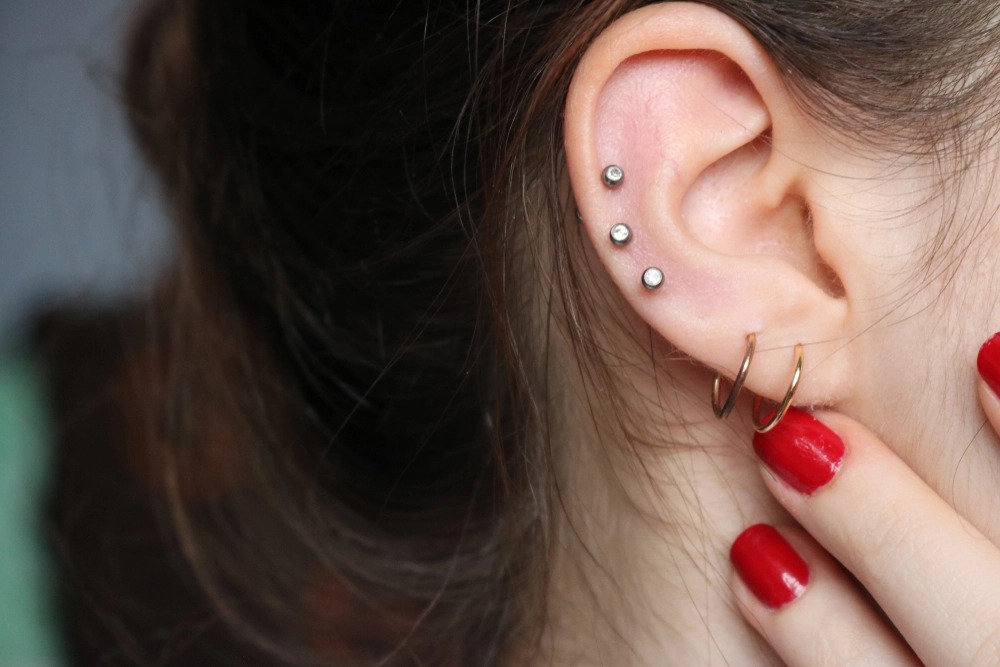Cozmoderm Clinic | Best Dermatology Clinic For Skin and Hair Care In Nagpur
Ear Piercing
Home / Ear Piercing

Ear Piercing
Infected Ear Piercing
Getting your ears pierced is usually a simple, safe procedure. But a new piercing is an open wound that requires care and good hygiene. If you get a mild infection, you may be able to treat it with over-the-counter products. For more serious infections you may need help from a healthcare provider.
What is an infected ear piercing?
An ear piercing is a hole through your earlobe or the cartilage in your middle or upper ear. An infected ear piercing may be red, swollen, sore, warm, itchy or tender. Sometimes the piercing oozes blood or white, yellow or greenish pus.
A new piercing is an open wound that can take several weeks to fully heal. During that time, any bacteria (germs) that enter the wound can lead to infection.
How common are infected ear piercings?
Millions of people get their ears (and other body parts) pierced, and most of them have no serious complications. Mild irritation and infections are common, however, for new piercings. In most cases, infections aren’t serious and clear up quickly.
The earlobes are fleshy and fatty, with strong blood flow. They heal quickly, reducing the risk of an earlobe infection. The upper ear is cartilage, a thick, stiff tissue with less blood flow.
Piercings in the upper ear are more likely to become infected, and infections in the upper ear are sometimes serious.
What causes infected ear piercings?
If bacteria gets into a new piercing, it can lead to infection. You may expose your new piercing to harmful bacteria by:
- Getting your ears pierced in an unhygienic environment or with unsterilized equipment.
- Touching your ears with dirty hands.
- Removing your earrings before the piercing heals.
- Neglecting to clean your new piercings daily.
- Swimming or submerging your head in a pool, hot tub, lake or river before your piercings fully heal.
What are the symptoms of infected ear piercings?
Some pain and redness are part of the normal healing process for pierced ears. It can be easy to confuse those with signs of infection. Symptoms that may indicate an infection include:
- Discharge coming out of the piercing.
- Fever.
- Redness, warmth or swelling around the piercing.
- Tenderness in the pierced earlobe or cartilage.
What are the complications of infected ear piercings?
Leaving an infected piercing untreated can result in a more severe infection or an abscess (a swollen area filled with pus). Upper ear piercings are more likely to get infected. Left untreated, these infections can spread into your body (called a systemic infection).
How are infected ear piercings diagnosed?
If you see signs of an infected cartilage piercing, you should contact your healthcare provider. Your provider can assess the severity of the infection.
If you suspect an infection in an earlobe piercing, take special care with hygiene. If the infection worsens, contact your healthcare provider.
How are infected ear piercings treated?
Your healthcare provider may recommend a variety of treatments to help an infected ear piercing heal. These may include:
- Applying a warm compress to the infected earlobe or cartilage.
- Rinsing the infected earlobe with sterile saline.
- Using antibiotic ointment on the affected area.
- Taking oral antibiotics for more severe infections.
